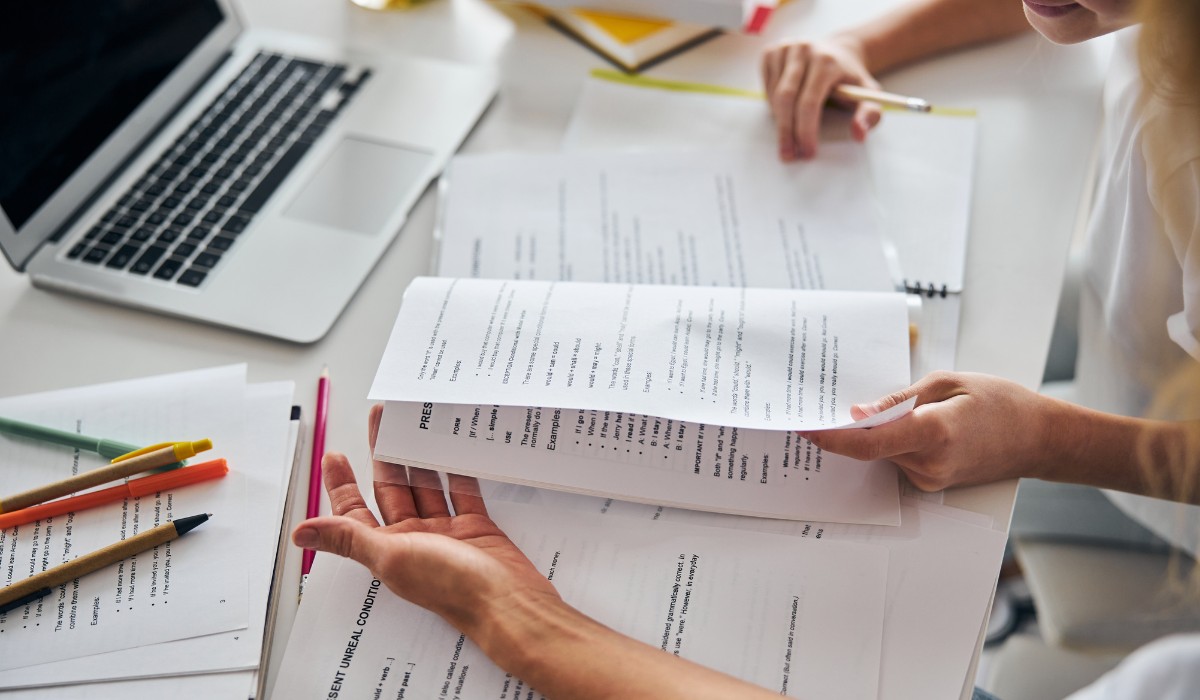Are you due to sit your GCSE or A Level exams in the summer? Revising for exams can be challenging and it’s easy to slip into bad revision habits, so we’ve put together a guide to help you ace your revision with some top techniques!
Have you ever sat down to revise but had no idea where to start? Or when you do finally start, you read the same page in your textbook and revision notes over and over again but it still won’t stay in your head. Don’t worry! We’ve all been there and there are ways to ensure you prepare for your exams!
How to revise effectively?
If you’re wondering how to revise effectively, then remember, you can never start too early! Revision isn’t something that you should be leaving until the last minute. If you’re thinking of cramming in a full term of information, the night before your exam, then you might want to rethink now! By starting early with your revision, you can focus on each subject and identify areas which need more attention.
The key to revising effectively is to find a balance between study, sleep and fun. Spending 24/7 in your bedroom without any social interactions or proper sleep is not a healthy way to revise. You can actually end up facing a revision burnout, a form of physical and emotional exhaustion. So little and often is always best – giving you a chance to still enjoy yourself.
Revision ideas
We’ve put together a list of revision ideas which can help you on your journey to exam success. Revising can be challenging and there is no one size fits all. Everyone is different and it’s all about finding revision ideas which are right for you. Whether you’re reading your revision notes or creating flashcards, there are various ways for you to succeed.
Create a Revision Timetable
Now, we really can’t stress this enough! Creating a revision timetable is vital. Having a plan makes you more likely to stick to it and you’ll know exactly what you’ll be studying and when. You can also block out time to spend with friends, family and hobbies. Avoiding temptations and knowing you’ve stuck to your revision plan can also be extremely satisfying.
‘Planning is key to success’
Creating a revision plan can help you to get your head in the game. It helps to keep you motivated and can help make your revision notes seem more inviting. After you’ve created your revision plan, you’ll need to find out which revision technique is best for you. To do that, you’ll first need to know about the revision techniques available.
What revision techniques are there?
There are a number of revision techniques and it’s all about finding which way is right for you. We don’t all learn the same – what works for one, won’t necessarily work for another and that’s perfectly okay! We’ve made a list of a few different ways you can revise:
Retrieval Practice
One technique which can be used when revising is the retrieval practice. This process is defined as ‘retrieving something from our memories to make it easier to recall in future.’ This learning strategy works by reading, repeating, checking and correcting what you have learned, which will then transfer from your short term memory to your long term memory.
Get Revising
Get revising is an invaluable tool which can help you to manage your revision sessions. Get revising is part of the Student Room and features a range of resources to help you to reach or exceed your predicted grades. Get revising allows you to create your own study plan, download past exam papers, create flashcards or a mind map plus much more. Whether you’re a university, A Level or GCSE student, there really is something for everyone.
Past Exam Papers
Past exam papers are another method of revision. You can find these online or ask your teachers for some, then answer the questions, use the marks scheme to identify which topics are your weaknesses and need improving. This way you can focus your revision on these areas.

Revision Cards or Flash Cards
Revision cards can be a great way of revising for some people. You can buy these from many stationary stores or create your own! Once you have them, you can write down all the key information you need to learn for your exam and then ask family and friends to test you.
Revision cards or flashcards can help to make large amounts of information seem more manageable as you break it down and pull out the key information.
BONUS: Revision cards are small and light, so you can take them with you on your journey to school or college.
Revision Books
Your school or college may have recommended buying a revision book to help you. These revision guides keep up to date with specifications and explain the course content clearly and concisely.
A Level and GCSE revision books can help you to prepare for your exam and the CGP revision books, in particular, contain practice exam questions to help you to identify what you have learned and areas of weakness so you can focus on them.
Revision Games
If you find revision boring and struggle to pay attention then you might choose to make revision fun through games. There are plenty of websites which allow you to do this! Why not get a few friends round and test each other with a revision board game or trivia quiz? You never know something interactive could help stick in your mind.

Get the Highlighters Out
We all love making things look pretty with highlighters but according to psychology, writing in colour actually helps you to retain up to 80% more information due to the brain being visual. There are specific colours which help boost the brain in different ways, orange keeps you from losing concentration, whereas, red is recommended for memory retrieval as it grabs your attention. Green improves concentration and calms the mind and blue promotes creative thinking. So grab your highlighters and use colour to remember key bits of information!
How to avoid overload?
When grabbing your revision notes, it’s important to avoid overworking yourself. Looking after yourself is equally as important as passing your exams. To avoid revision burnout it’s important to schedule time for yourself. To avoid overload you can:
Take breaks and exercise
When revising, it’s important to avoid revision burnout! Make sure you take breaks and enjoy time off from revision so you don’t feel overworked and stressed. Exercise is a great way to take a break from revision and gets the blood flowing to help your brain to function better.
Eat well
Eating healthy when you’re revising is vital to help give your brain a boost during revision periods. There are certain foods which we often refer to as ‘brain food’, such as oily fish, eggs, greens plus many more. Fuel the brain and eat healthily!
Get a good nights sleep
We’ve all had one point in our lives where we’ve run on little to no sleep – not a good feeling, is it? Getting a good night’s sleep is vital to overall wellbeing and performance. Getting an early night is just what you need to feel refreshed, prepared and motivated during revision.
Now what?
Start! Now you’re in the know with these top revision techniques, there’s no better time than now to get started. Don’t make the mistake of cramming a full term of revision into just one night. Preparation is the secret to revision success!



